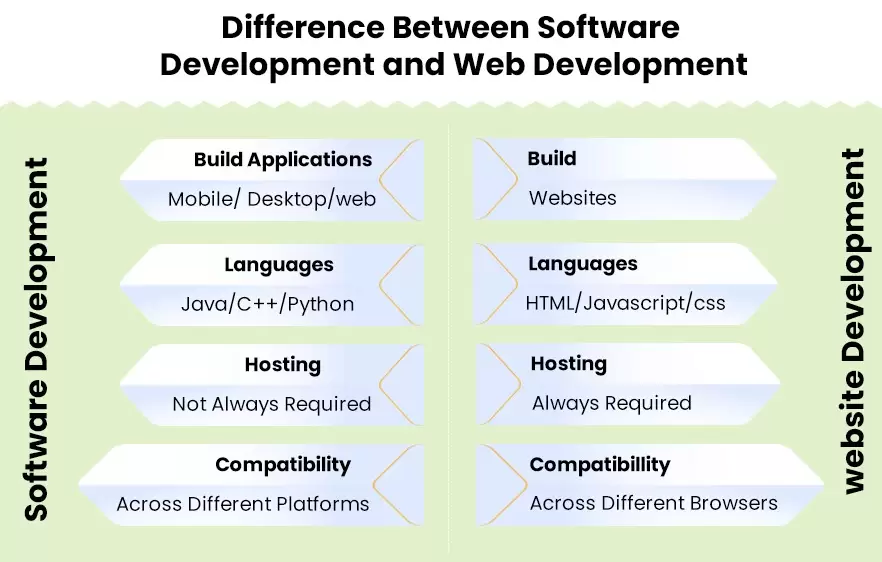Digitization has changed how businesses handle their prospective clients to a great level. Gone are the days when companies would only flourish through advertisements. Now, with innovations and technologies, mobile and website development are the two game-changing prospects for businesses. Both of these offer a blend of unique and effective ways of reaching more customers on a worldwide basis. Now, it is true that the need for both of these have effective measures related to it. But deciding which one is better for your business can often be a challenging task to decide upon. Let’s explore in detail by understanding which option, mobile app vs. responsive website, is suitable for you and your business needs.
Website Development
It is a mandate nowadays to have a well-optimized website for almost every business, irrespective of its size. Some definite ways in which a website offers practical benefits for a business are :
Reach and Accessibility
A website is a digital storefront accessible to anyone with internet connection and a web browser. With the increasing availability of smartphones and internet connectivity, websites offer a broad reach across various devices. Users can access your website through search engines, social media links, or directly typing in the URL. The reach of a website can be further enhanced by optimizing it with correct and practical content. A company with a definite website presence is always in a better position than one without it.
Cost and Development Time
Developing a website is generally more cost-effective and faster than building a mobile app. Websites can be created using various content management systems (CMS) or web development frameworks, reducing development time and cost. This helps to register a company easily and increases customers’ trust and value. Additionally, website updates and maintenance can be relatively straightforward, with the ability to quickly make changes and publish new content. It is way easier to make minimal changes and update the website pages by getting them designed by the best web development company.
SEO and Discoverability
Search engine optimization (SEO) is actually crucial in attracting organic traffic to your website. Optimizing your website’s content and the structure can help improve its overall visibility and rank on search engine result pages. The more the content is generalized using an effective SEO strategy, the better it reaches a large audience. Websites also have the advantage of being shareable across different platforms, allowing users to share links to your content, enhancing discoverability easily. The best part is that the websites are SEO friendly and optimized better; they can reach more customers.
User Experience and Responsiveness
Responsive web design tends to ensure that your website adapts seamlessly to various screen sizes, providing a consistent user experience across devices. While websites may offer different levels of interactivity and immersive experiences than mobile apps. But there is no doubt that websites are highly accessible and provide a user-friendly interface for browsing information, making purchases, or engaging with services. An effective and responsive website design can also greatly improve a company’s overall value. Thereby, it is a necessity to get your website designed by a web and mobile app development company.
Analytics and Tracking
Websites offer robust analytics tools to track user behavior, engagement, and conversion rates. Businesses can also make data-driven decisions to optimize their marketing strategies by analysing these insights. This helps to improve user experience and enhance the overall performance of a website as well. The better the websites are tracked and valued better. It offers credibility and an analysis of the entire website. To ensure that your website is also rightly tracked, it is crucial to get it tracked by a web design and development company.
Mobile App Development
The use of smartphones has exceptionally increased with the growth of digital presence. And there is no doubt that almost every company now needs to optimize their business in a mobile-friendly way as well.
Personalized User Experience
Mobile apps can offer a highly personalized user experience by leveraging device-specific features. Each of these features is variable depending on users, like push notifications, location services, and camera functionality. Apps allow businesses to engage users with tailored content, personalized recommendations, and seamless interactions. Furthermore, the application’s features can be effectively monitored and changed over time through mobile applications.
Enhanced Functionality and Usability
Mobile apps can provide a higher level of functionality and interactivity compared to websites. They can integrate with the device’s hardware, enabling features like barcode scanning, augmented reality, or biometric authentication. Additionally, apps can offer offline access to certain content or functionality, allowing users to engage even without an internet connection. This is one of the most crucial features for a number of users to use offline access effectively.
Brand Loyalty and Customer Engagement
Mobile apps can foster a deeper connection between businesses and their customers, leading to increased brand loyalty. Mobile applications offer a definite level of personalized experience by increasing customer engagement. This more effectively increases as more and more users can directly connect to the brand presence through the mobile app. Several compelling offers like loyalty programs, exclusive offers, and personalized experiences can also be rightly offered to customers through the mobile application. This also tends to increase customer loyalty and dependency on a specific brand.
App Store Exposure
Publishing your app on popular app stores like Google Play Store and Apple App Store exposes your business to a vast user base. This is because customers nowadays use smartphones more as compared to websites. Users searching for specific functionalities or services can discover your app through app store listings, leading to potential organic downloads and user acquisition. Customers can also come across your business application by going through the play store.
Development Complexity and Maintenance
Mobile app development can be more complex and time-consuming compared to website development. It requires expertise in app development frameworks, programming languages, and platform-specific guidelines. Additionally, app updates and maintenance may involve more stringent review processes and compatibility challenges across different devices and operating system versions. Overall maintenance can indeed be a challenge in the long run. To avoid this, the best way out is by getting help from a selected website development firm.
Conclusion
Choosing between mobile app and website development depends on various factors, including your business goals, target audience, budget, and desired functionality. Websites offer broad accessibility, cost-effectiveness, and easy maintenance, making them suitable for businesses. It also helps in wider information dissemination by increasing the overall reach. On the other hand, mobile apps provide a personalized user experience, enhanced functionality, and brand loyalty, making them ideal for businesses looking to engage and retain a dedicated customer base.
Ultimately, it is necessary to consider your business’s specific needs and objectives when deciding between a website and a mobile app. In some cases, businesses may opt for both to leverage the unique advantages of each platform. The all-time question of the better app or website depends on your company’s framework and objectives. But the best way is to consult with a professional web or app development team to help you rightly evaluate your options and make an informed decision.









